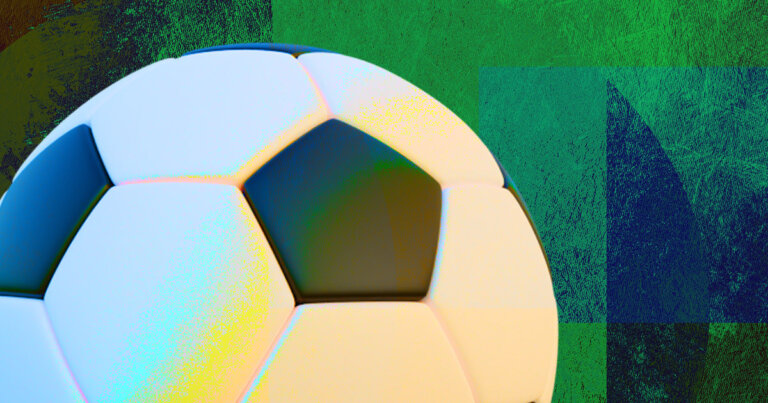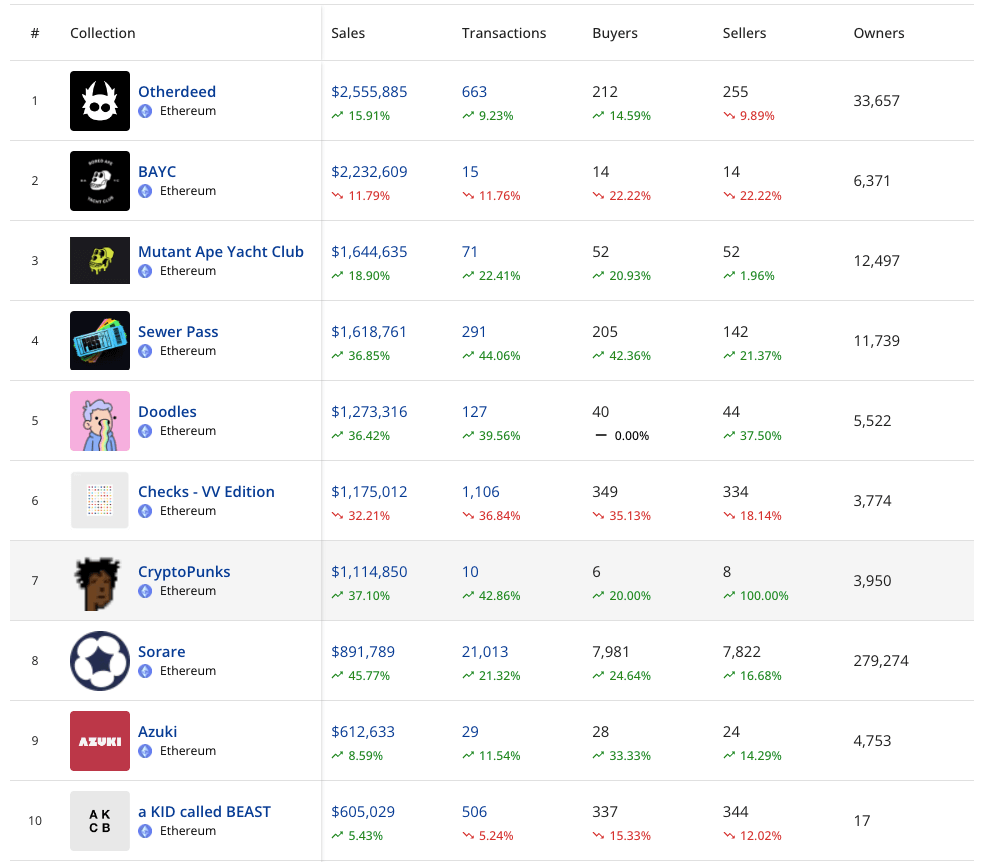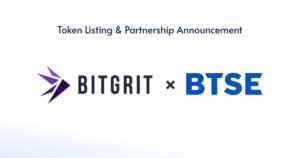 Sorare, English Premier League enter multi-year NFT deal
Sorare, English Premier League enter multi-year NFT deal Sorare, English Premier League enter multi-year NFT deal
The multi-year deal includes an NFT backed fantasy football league featuring top Premier league players

Cover art/illustration via CryptoSlate. Image includes combined content which may include AI-generated content.
NFT Platform Sorare and the English Premier League have signed a multi-year deal for a license to offer NFTs of league player cards, CNBC reported Jan. 30.
The Paris-based startup will allow its 3 million users to play its fantasy football game with Premier League-specific player cards, allowing fans to buy, sell and trade virtual cards of their favorite players as part of the deal, which was initially reported to be valued at £30 million.
The news of the partnership between an NFT start-up and one of the world’s biggest football leagues comes amidst a precipitous decline in the overall NFT market since its peak in 2021, with overall sales of digital assets plunging by more than 90%.
According to data compiled by CryptoSlam, Sorare has risen to 8th place overall, with total sales amounting to $891,789 between Dec. 31-Jan. 30, a 45% increase from the month before. In 2022, total card sales on the Sorare platform amounted to $500 million, nearly doubling its 2021 total of $270 million.

The agreement is just the latest in a string of other deals Sorare has inked in the sports world, including with both Major League Baseball and the National Basketball Association.
Founded in 2018, Sorare specializes in using blockchain technology to bring fans into contact with digital collectibles through fantasy leagues.
Sorare was last valued by investors at $4.3 billion in September 2021, backed by industry leaders like Japan’s SoftBank and venture capital firms Accel and Benchmark. It counts among its shareholders, athletes like Lionel Messi, Serena Williams and Kylian Mbappe.
It has, however, come under scrutiny in the UK and France over allegations it encourages gambling, with the UK Gambling Commission called to investigate whether Sorare.com “requires an operating license or whether the services it provides do not constitute gambling,” according to a 2021 notice.
The company responded to the allegations by stating that 80% of its players play the free version of the fantasy league, while also committing to strengthening the free-to-play elements of the game, as it was requested to do by the French National Gaming Authority.



 Farside Investors
Farside Investors 












































































